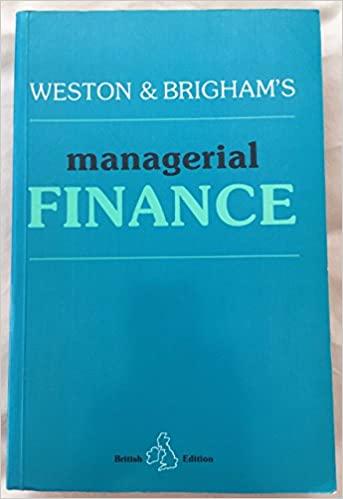Question
All else equal, less frequent compounding results in which of the following? larger number of periods per year lower present values lower effective annual rates
-
All else equal, less frequent compounding results in which of the following?
larger number of periods per year
lower present values
lower effective annual rates
higher future values
10 points
QUESTION 6
-
You have an investment account that is starting with $1200. You would like the account to grow to $7500, and you can earn 6% interest annually. Assume you make no additional contributions to the account. Assume an annually compounded interest rate. How many years will you need to wait? (round to two decimals)
32.99 years
8.07 years
29.78 years
5.47 years
31.45 years
Step by Step Solution
There are 3 Steps involved in it
Step: 1

Get Instant Access to Expert-Tailored Solutions
See step-by-step solutions with expert insights and AI powered tools for academic success
Step: 2

Step: 3

Ace Your Homework with AI
Get the answers you need in no time with our AI-driven, step-by-step assistance
Get Started


